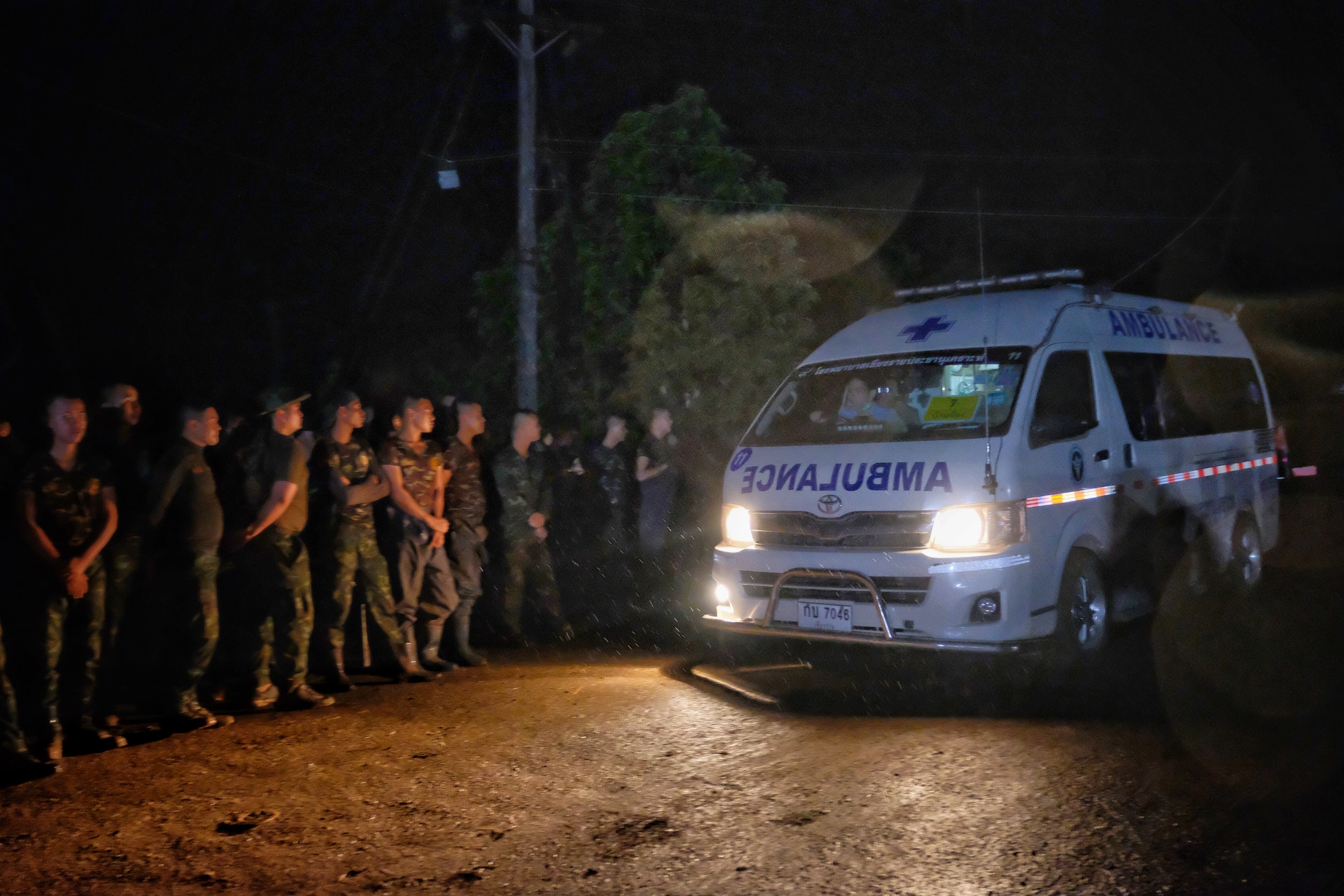The Thai cave football coach taught his team to meditate to help them through 17-day ordeal, reports say
Chanthawong, who’d spent a decade as a Buddhist monk, could meditate for up to an hour at a time. Reports suggest he helped guide the boys in the practice when they needed it most

Stop. Breathe. Let everything go.
That approach appears to have been a technique used to help keep 12 boys and their football coach alive for more than two desolate weeks of being trapped in a flooded cave in northern Thailand.
All 12 boys and their coach were rescued this week by a team of Thai navy SEALs.
The 11 to 16-year-old football players and their coach, 25-year-old Ekapol Chanthawong, were exploring the cave after practice on 23 June when it suddenly flooded because of heavy rains from a monsoon. A pair of British divers found the group 10 days later.
Instead of screaming or crying, the group was sitting quietly in the dark, meditating.
Chanthawong, who’d spent a decade as a Buddhist monk, could meditate for up to an hour at a time, his aunt told The Associated Press. Reports suggest he helped guide the boys in the practice when they needed it most.
Meditation is known to have a host of health benefits and may be uniquely suited to help people cope with extreme stress. Several studies have found links between meditation and an immediate, measurable reduction in feelings of depression and anxiety as well as physical pain.
It also appears to help us turn the volume down on the intensity of nearby disturbances, whether it’s a cacophony of car traffic or the crash and whirl of powerful monsoon waters.
Turning down the volume on stressful situations
For a long-term study published in the journal Emotion in 2012, Richard Davidson, a neuroscientist at the University of Wisconsin, looked into the idea that meditation might help us cope with outside disturbances.
He found that when he tried to startle two groups of people — one that was meditating and one that was not — with a sudden interruption like a loud noise, the meditators were far less perturbed than the people who weren’t meditating. Those results were true regardless of whether the participants were new or experienced at the practice.
That benefit of meditation could have proved hugely helpful to the Thai players, who were cold, scared, and alone more than 2 1/2 miles deep into a labyrinthine cave network.
Additionally, meditation may be linked with heightened feelings of empathy, another key asset for a small team of isolated people who need one another to survive.
In a follow-up analysis, Davidson played the sounds of stressed-out voices to groups of experienced and novice meditators, then observed their brain activity patterns in an MRI. He noted increased activity in two brain areas known to be involved in empathy among members of both groups but found that activity was significantly more pronounced in the brains of the experienced meditators.
These results suggest that, given enough time, people who meditate regularly might have an enhanced ability to respond to others’ feelings and empathise with them without becoming overwhelmed, Davidson concluded.
‘We are not sure if this is a miracle, a science, or what’
A growing body of research on meditation also suggests that even a few minutes of daily mindfulness is linked to lower stress levels, more positivity, enhanced creativity, and even better focus.
Something about meditating seems to help people deal with worrisome thoughts. It’s somewhat like taking a broom to the bustling thoughts that can crowd our heads and waiting until all the dust has settled.
All those benefits likely drew Chanthawong to the practice – and helped keep his team alive.
“We are not sure if this is a miracle, a science, or what,” the Thai navy SEALs wrote on Facebook on Tuesday, after the rescue was complete.
Join our commenting forum
Join thought-provoking conversations, follow other Independent readers and see their replies
Comments
Bookmark popover
Removed from bookmarks